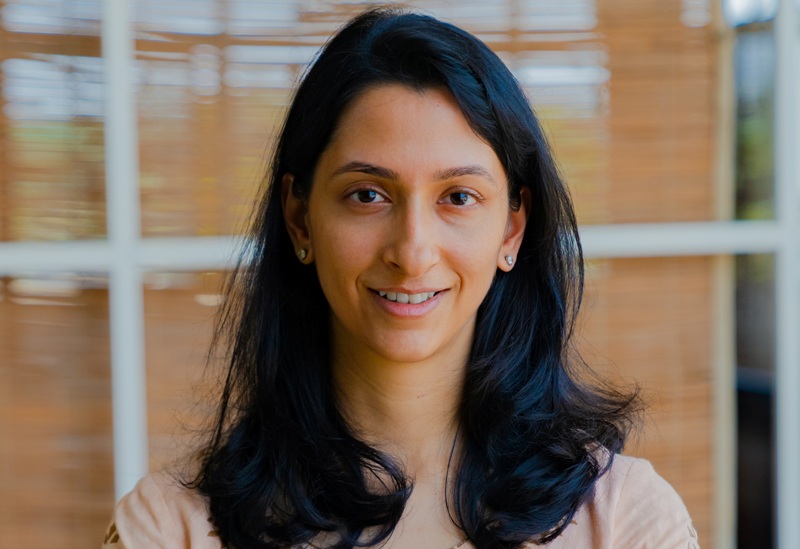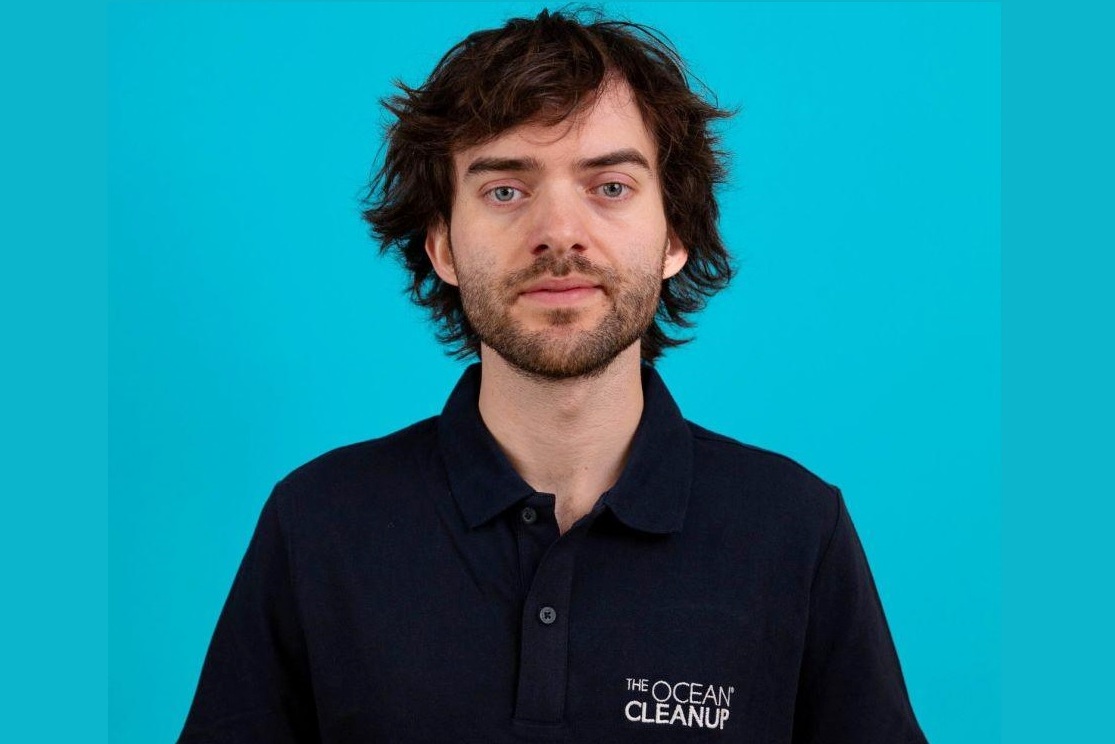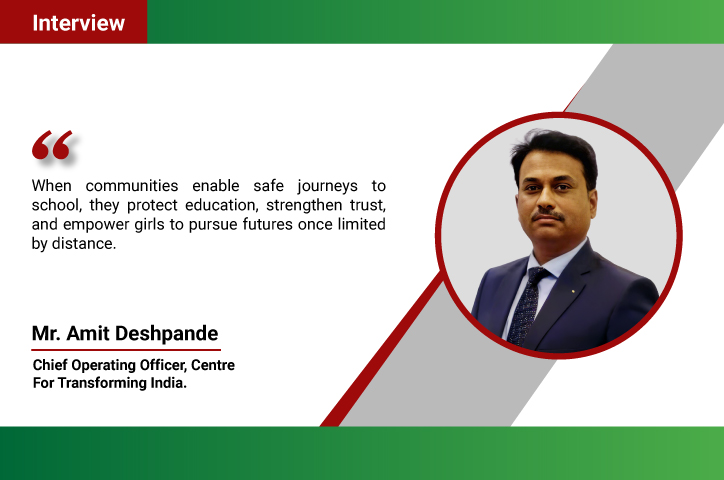Charitable trust LiveLoveLaugh (LLL) recently expanded its rural mental health program to Chhindwara district in Madhya Pradesh, aiming to support 1,200 Persons With Mental Illness (PWMI) and their caregivers in 131 villages. Founded by Deepika Padukone in 2015, the organization is dedicated to improving mental health outcomes and has set an ambitious goal of reaching one lakh individuals in rural India with mental illness and their caregivers in the next five years.
In an exclusive interview with TheCSRUniverse, Ms. Anisha Padukone, CEO, LiveLoveLaugh, shares insights into the organization's comprehensive range of programs, which include mental health education, capacity-building, awareness campaigns, stigma reduction, research, and free counseling helplines. She further highlights the importance of accessibility, affordability, and destigmatization in mental health services, and discusses LLL's collaborative efforts with grassroots organizations like Gramin Adiwasi Samaj Vikas Sansthan and their advocacy initiatives to influence policy changes and promote mental health awareness at a national level.
Through their impactful programs, the organization has positively impacted countless lives and aims to extend their transformative influence even further. To explore more about LiveLoveLaugh's impactful initiatives and their commitment to transforming mental health in rural communities, read the full interview below.
Q&A
Q. LiveLoveLaugh, an organization focused on mental health, has made a significant impact since its establishment in 2015. Can you share key milestones and achievements of LiveLoveLaugh, highlighting how its programmes have positively influenced the mental health landscape in India? Additionally, could you provide a brief overview of the organization's founding and evolution?
LiveLoveLaugh (LLL) was founded by Deepika Padukone in 2015 to give hope to every person experiencing stress, anxiety, and depression. LLL's programs and initiatives have since included rural community mental health, mental health education for adolescents, capacity-building, public awareness, and stigma-reduction campaigns such as Dobara Poocho (2016), (India's first nationwide public awareness campaign on mental health), and #NotAshamed (2018). In addition, LLL has also undertaken research and funded a free counselling helpline.
Our adolescent mental health program has reached 210,000 students and 21,000 teachers, while our doctor's program has covered 2,383 doctors. From approximately 3,000 beneficiaries last year, our rural mental health care program has witnessed a five-fold expansion, and we expect to serve ~15,000 beneficiaries this year (FY 2023-24). The LLL website provides access to 15 helpline numbers and over 300 mental health professionals nationwide.
Our 'Stories of Hope' initiative has gathered nearly 500 courageous journeys shared by individuals with lived experience of mental illness and their caregivers. In addition, our digital channels, media outreach, and platforms like the LiveLoveLaugh Lecture Series have helped inform and inspire people and transform attitudes toward mental health. This reshaping of perspectives was evident from the comparative results between our 2018 and 2021 surveys on public perception, and it is rewarding to see the results of years of our hard work taking shape as mental health conversations become central to mainstream discourse.
LLL was a recipient of the prestigious Dr. Guislain "Breaking the Chains of Stigma" global award in 2019. The World Economic Forum (WEF) awarded our founder, Deepika Padukone, the Crystal Award for her leadership in building mental health awareness in 2020.
In 2021, we were among the first cohort of 100 NGOs from 20 Indian states, selected to receive a grant by GROW Fund.
The last eight years since LLL's inception have been incredibly enriching for us, and we consider it a privilege to have the opportunity to make a difference in the lives of millions.
Q. Can you share specific examples of challenges faced by individuals with mental illness in rural communities vis-a-vis urban geographies, especially in the context of infrastructural support, socioeconomic factors, accessibility, and social support networks?
Nearly 70% of the Indian population lives in rural communities, where access to treatment and support for mental illness is a challenge. Stigma exists, as does a strong belief in black magic, faith healers, and religious practices to treat mental illness. Lack of understanding on the topic leads to the person with mental illness and their families being ostracised. Quality psychiatric care is typically available only in the closest town to the village, which is not easily accessible to the community members. To travel this faraway distance, they spend a lot of time and money apart from the cost of the actual treatment itself. With limited income, families usually choose not to treat mental illness. Therefore, our rural program focuses on the 3 A’s - awareness, access, and affordability. I’d like to illustrate this point by sharing the story of two of our program beneficiaries - Lakshmana from Davangere and Jyothi from Gulbarga.
- Lakshmana has been a beneficiary of the LLL's rural program since 2016. He was diagnosed with schizophrenia after a road accident and brain injury. Exhibiting aggression, and aloofness, he struggled with daily activities. His family spent over four lakh rupees on his treatment at private hospitals. LLL's program streamlined Lakshmana's path to recovery, providing consistent medication supply, consultations, and counselling for his family. ASHA workers and village volunteers played a vital role in helping them manage his treatment and condition. The transformation brought stability to Lakshmana's life, enabling him to care for himself and also generate a stable income that significantly eased the family's burdens. The program has changed Lakshmana's life & also positively impacted his family. Now an active parent champion, his mother pays forward her gratitude by supporting other families facing similar experiences in the village. Through LLL's intervention, lives have been transformed, empowering individuals and the entire community.
- Over the years, Jyothi, a Gulbarga resident, had become aggressive and violent. Her family members struggled to cope and believed her condition was because of black magic. They took her to several temples hoping she'd get better. But her condition didn't improve. She was diagnosed with psychosis in 2021 and referred for treatment under LLL's rural program. Her condition has stabilized now, thanks to the medication and regular follow-ups by the on-ground team. After the program intervention, her family's economic burden has also reduced. Earlier, they spent vast amounts of money on treatment and medication from private hospitals. They also had to travel to faraway locations to access treatment. However, essential medicines are now available at the nearby PHC (Primary Health Centre), within walking distance from their house. They are hopeful Jyothi will make a complete recovery.
Q. With the expansion of the program to Chhindwara, what measures is LiveLoveLaugh taking to ensure the accessibility and affordability of mental health services for individuals and their caregivers in rural communities? Are there any innovative approaches, strategies or technological solutions being implemented by the organisation?
As mentioned previously, Accessibility, Affordability, and Awareness-Building initiatives are at the core of our program. Expanding our outreach to Chhindwara underscores our intent to serve more communities by scaling our program interventions and building on existing impact. We want every community to benefit from our rural program model.
Accessibility: We work with the District Mental Health Program to ensure that quality mental health services, including psychiatric treatment and psychosocial rehabilitation, reaches even the remotest homes in the community. Beneficiaries are also provided access to various government aided schemes, including monthly disability pension.
Affordability: A significant challenge in rural communities is that while medication and treatment might be available, it is often expensive and only available at private clinics. This drives people into debt and makes it difficult to continue treatment. We ensure that all the medications are available at PHC levels & through advocacy efforts, ensure that treatment is also accessible as close to the community as possible. Mental health camps are held monthly in all communities, so regular screening and treatment can occur. All the activities provided to the community are implemented free of cost. We also undertake vocational training for the beneficiaries who have been stabilized, which helps them earn a living.
Awareness - Street plays, wall writings & distribution of awareness material is circulated regularly with mental health topics are widely addressed during support group meetings.
Innovative approaches/ technological solutions - 1) Caregiver support groups are formed in the community where caregivers can seek not only emotional and social support but also livelihood support when needed. These groups also do a lot of local advocacy work - they are trained in the mental healthcare act and their rights. 2) Introduction of telemedicine and telerehabilitation to ensure support reaches interiors. 3) Over time, the community is trained to take ownership of the program, thereby ensuring a self-sustainable model of long-term accessibility.
Q. In what ways does LiveLoveLaugh's program aim to change the perception of mental illness in rural areas, where it is often misunderstood or stigmatized? Can you provide examples of initiatives or activities undertaken by LiveLoveLaugh that promote awareness and destigmatization?
In most rural communities, the belief is that mental illness is caused due to black magic and can be cured by faith healers and religious practices. Often, stigmatizing language and derogatory terms are used to describe PWMIs (Persons With Mental Illness), leading to their families being ostracised. Through awareness-building workshops, support group meetings, educating village volunteers to support their communities, and distributing awareness-building materials, street plays, and wall paintings, we work to evolve the community’s definition and understanding of mental illness. These activities have helped increase mental health awareness and normalize mental illness in these communities over time.
Q. How does LiveLoveLaugh collaborate with local grassroots organizations like Gramin Adiwasi Samaj Vikas Sansthan (GASVS) to ensure the effectiveness and sustainability of the rural mental health program, and what advocacy efforts does the organization undertake to influence policy changes and ensure that mental health receives the attention it deserves on a national level?
Our efforts are focussed on conceptualising the program model, funding, overseeing and monitoring the program, while implementation is handled by grassroots organisations based locally. We believe that we are best placed to manage a centralised model for program delivery while the partners have the network and expertise to implement the program in their communities. Besides funding the program, we undertake advocacy with the local government bodies to ensure quality treatment and care reaches the communities. By working closely with the on-ground partner and community, our program model is designed to train various stakeholders to reach self-sustainability. Each stakeholder within the program is trained in their responsibilities and rights to carry forward the activities. Within five to seven years the community is encouraged to take ownership. This has been demonstrated in Davangere, Karnataka, the first district that we supported back in 2016. LLL is still at an early stage regarding specific policy change interventions. However, we work collaboratively with other stakeholders in the ecosystem to highlight issues, and facilitate networks and solution-orientation to resolve challenges.
Q. How does the organization's holistic support and treatment approach for individuals with mental illness and their caregivers integrate pharmacological and psychosocial support services? Most importantly, how do you work towards building the capacity of healthcare professionals and community members to ensure the sustainable delivery of mental health services in rural areas?
LLL's model and approach is holistic. When we support a beneficiary, we look at their entire ecosystem. This includes the individual, their family members or caregivers, and their community. Their psychosocial condition is taken into consideration when designing an intervention. E.g. While a beneficiary's condition may warrant medication, it is also supported with doorstep counseling. We also ensure the family receives counseling support throughout the process to manage the PWMI’s treatment and condition. Under our holistic approach, once the beneficiary is stabilised, they are also trained in livelihood activities aligned with their skills. We ensure that a source of a stable income is generated for the family - this may mean training caregivers and/or the PWMIs so they can be rehabilitated back to their community.
Social support is also provided to caregivers who often bear the burden of not only full-time care of the PWMI (Person With Mental Illness) but also face social isolation. To tackle this, we form support groups for caregivers in the community that act as a means for emotional and social support and practical problem-solving & advocacy. E.g., if one caregiver is facing a challenge where they cannot generate an income, they may seek support from these caregiver groups to take a small loan to help them start a business.
Healthcare professionals (ASHA and Anganwadi Workers) receive regular training on mental illness to effectively identify and refer persons with mental illness to the right kind of intervention. In addition, our village volunteers are also trained in 'barefoot counseling.'
Q. Given the crucial role of corporate social responsibility (CSR) in addressing pressing societal issues, particularly mental health, how can corporates strategically contribute to advancing mental health through their CSR initiatives? Moreover, could you provide insights into the collaborations and partnerships that you have established with other corporates to amplify the impact of its mental health initiatives?
India’s mental health sector requires large-scale, sustained interventions to achieve impact, and corporate CSR can play an influential role in advancing India’s mental health agenda. While a few corporate organizations have stepped forward to fund public media campaigns and host awareness and destigmatizing efforts, others have offered a range of pro bono services, including design, strategy consulting, etc. Social media platforms have provided support via free credits to amplify our messaging.
We have also been fortunate to have a few companies and business owners stepping forward to fund interventions in specific program areas. E.g., a large business conglomerate headquartered in Tamil Nadu funds LLL’s rural intervention in Thiruvallur. Similarly, a Delhi-headquartered IT services group has decided to support our program intervention in Odisha. A Bangalore-based clothing manufacturing company is supporting our program intervention in Karnataka.It is encouraging to see the heightened attention toward the mental health sector from Corporate CSR funding.
Q. In light of the COVID-19 pandemic, how did LiveLoveLaugh adapt its rural mental health programme to address the increased mental health needs and challenges faced by individuals and communities? Can you share any specific strategies or initiatives implemented by the organization during this time?
During the pandemic, we provided beneficiaries access to treatment and follow-up care via telemedicine and teleconsultation with their doctors using mobile phones. Despite the lockdown, on-ground teams ensured that medication was regularly supplied to community members. The teams were able to secure special passes for movement, and medicine was then hand-delivered to the doorsteps due to restrictions in movement. in addition to mental health support, even food grains and essential supplies were handed out to families in some cases. Caregivers were also empowered to support their community by harnessing partner teams to ensure the services and medication reached their homes. Some of our partner organizations and on-ground teams required training and hand-holding to adapt to the virtual model of delivery, which LLL also facilitated.
Q. What are LiveLoveLaugh's goals and aspirations for the expansion of the rural mental health programme in the next few years?
Rural mental health will continue to remain a core focus area for LLL. In the next five years, LLL would like to expand our rural outreach to cover 1,00,000 persons with mental illness and their caregivers, marking a six-fold increase over the 15,000 rural program beneficiaries planned for this year. Since we work through strategic partnerships, we are also keen to provide support to strengthen grassroots organizations and aim to replicate this community-based self-sustainable model in several districts across the country.


















